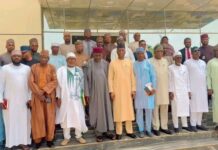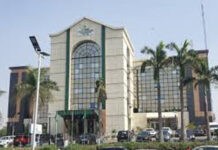As the COVID-19 pandemic continues to pose serious challenges around the globe, the roll-out of vaccinations has helped build assurances that the year 2021 will be better. Preparations are underway for this year’s G20 Interfaith Forum to be held in Bologna, Italy from September 12-14, 2021.
Insha Allah, Kaabanews will be there. The last edition was hosted by Saudi Arabia where this writer also joined via webinar.
The G20 Interfaith Forum offers an annual platform where networks of religiously linked and faith-inspired actors engage on global agendas, within the broad framework of the United Nations Sustainable Development Goals (SDGs) and the G20 host country’s agenda. The G20 Interfaith Forum advocates global solutions by collaborating with religious thought leaders and political representatives.
The need for constant interaction and cooperation between policy makers and religious institutions can not be over emphasised especially in the face of the global challenges and in order to proffer solutions to them.
Religious institutions and their leaders, intercultural organizations, scholars, development and humanitarian bodies as well as people in business and civil society actors meet to brainstorm on how they can contribute positively to humanity around the world.
The 2020 resolutions in Saudi Arabia
In 2020, the G20 Interfaith Forum recommended that the forum would support more active collaboration between public and religious institutions with an urgent focus on issues such as solution to Covid-19 emergencies by engaging religious communities systematically on anti-COVID vaccine development, messaging, and distribution; act with religious communities in meeting urgent needs of especially vulnerable communities, including refugees and internally displaced people (IDP)s, scapegoated communities, and women and children
Also, it shared its readiness to bring about peace and resolving conflicts. This could be done by collaborating with religious communities to advance a global ceasefire and pursue specific peacemaking actions. The forum will also collaborate in addressing hate speech and associated violence; strengthen collaborative measures to advance action on refugee and IDP populations and act urgently to protect sacred sites and religious and cultural heritage.
The Forum will also empower people through development agenda that promote education, oppose corruption, empower women and reduce structural inequality and racism. It will also engage in collaborative action to advance urgent inclusive education reforms; strengthen common platforms supporting anti-corruption; pursue multi-stakeholder action on human trafficking.
It will also collaborate to translate commitments to women’s equality and youth engagement into concrete action plans and also join forces with religious communities to combat structural inequality and racism.
The G20 Forum further resolved to take common action to protect the planet, support rain-forest initiatives as well as actions that will enhance religion-public sector synergies.
The President of the G20 Interfaith Forum Association and Founding Director of the International Center for Law and Religion Studies, Professor Cole Durham, while addressing the gathering said:
“Never before have we seen a more urgent need for religious communities to work with political leaders to address the unprecedented and interrelated challenges facing the world today,”
“If implemented, the collaboration recommendations provided to G20 Summit leadership will help us empower people, safeguard the planet and shape new frontiers.”
No doubt, the assemblage of opinion leaders-including scholars, lawyers, and politicians-and global interfaith activists for three days of discussion and interfaith dialogue will no doubt produce ideas and opportunities for tackling the world challenges
The 2021 forum in Italy
The next forum in Italy will be held in Bologna, Italy, Sunday, September 12 – Tuesday, September 14 later this year. The event is already tagged: “Time to Heal” – Peace among cultures, Understanding between Religions.
Beginning in Australia in 2014, the G20 Interfaith Forum has convened annually in the G20 host country. The Forums have considered wide-ranging agendas, including economic models and systems, the environment, women, families, children, work, humanitarian aid, health, education, freedom of religion or belief, global security, governance, human rights, and the rule of law. The agenda for each Forum is framed taking into account the annual G20 priorities (outlined each year by the host government), together with topics that the various networks of religious actors recommend that the G20 leaders address. The forum met in Australia in 2014, Turkey in 2015, China in 2016, Germany in 2017, Argentina in 2018, Japan in 2019, and Saudi Arabia in 2020.
Global recognition is increasing for the vital roles faith and religion play in promoting peaceful and harmonious relationships within and between nations. Few examples are widely recognized, however, of the positive contributions faith and religion make to social wellbeing and to policies that impact national and international communities.
. In showcasing the broad, global impact of various faith traditions and philosophies from around the world, the Forum fills important gaps in the discussions of the G20 Summits. Social cohesion is strengthened between political representatives and religious thought leaders, and new opportunities are provided for relationship-building among all participants.
According to a document released recently by the organisers, the G20 Interfaith Forum has consistently sought to build and draw on an inclusive network of networks of public, religious, humanitarian, and academic institutions engaged in a variety of ways in promoting interactions of religious voices, religious studies, and religious communities with the public sector in formulating and implementing global policy initiatives.
Working Groups
The G20 Interfaith Forum organizes its work through a series of Working Groups which focus on areas of recurring relevance to G20 policy priorities. In particular, these standing Working Groups organize research, analysis, and Forum activities that relate to the United Nations Sustainable Development Goals and other matters of recurring concern. In any given year, additional task force groups may be set up to address issues of particular concern in light of the G20 host country’s priorities or in response to other critical emerging issues. The following standing Working Groups have been established (with sub-focus areas noted in several cases): Reducing Poverty and Inequality (includes job creation and zero hunger); Religion, Health, and Wellbeing (includes COVID-19 responses); Education (includes religious literacy); Gender Equality (includes equal pay issues and trafficking/slavery); Religion and the Environment Religion; Technology, Innovation, Infrastructure, and Media; Peace, Justice and Strong Institutions (includes sacred sites, corruption, rule of law, freedom of religion or belief, peace building and diplomacy); Refugees, Displacement, and Migration; Disaster Preparedness and Relief-Humanitarian Aid.
Children and Youth
In addition, an Anti-Racism Initiative has been established to examine how responding to the challenges of overt and systemic racism can be addressed across the entire spectrum of issues being addressed by the G20 Interfaith Forum.
Each year, the G20 Interfaith Forum develops policy briefs that are designed to provide substantive input benefiting from insights of a range of religious communities designed to be of assistance to those in official policy making roles. In addition, each year’s Forum develops prioritized concrete recommendations for those engaged in the G20 process-recommendations that are designed to be delivered to G20 Summit leaders, but have broader relevance to policy making at the level of public bodies operating at the international, regional, and national levels and to those concerned with global policy issues in religious, inter-religious, and academic settings.





















